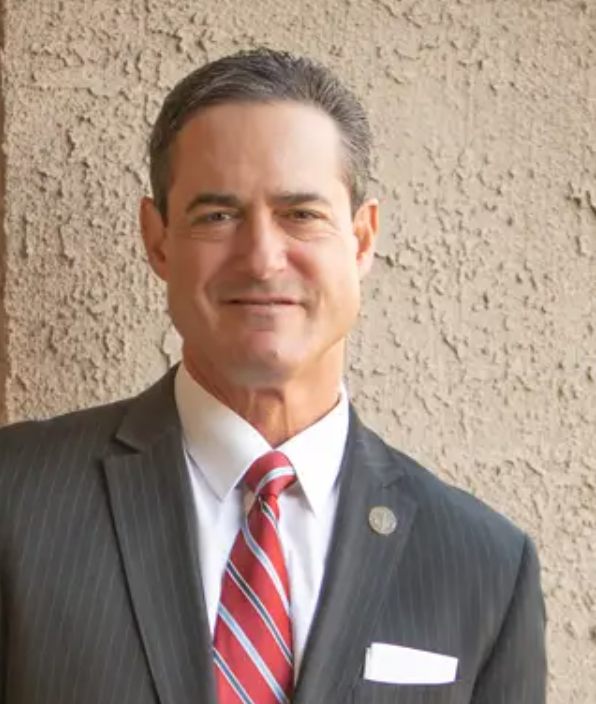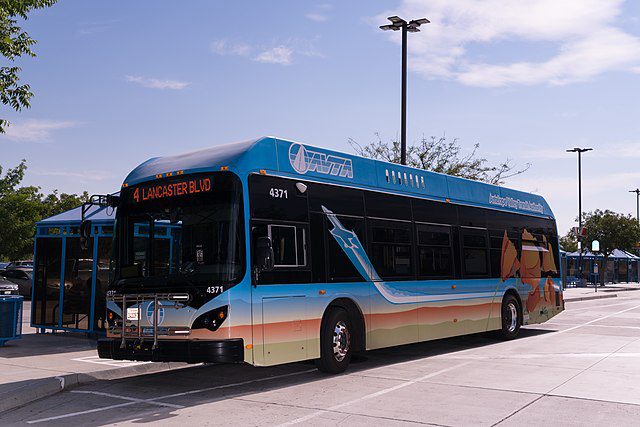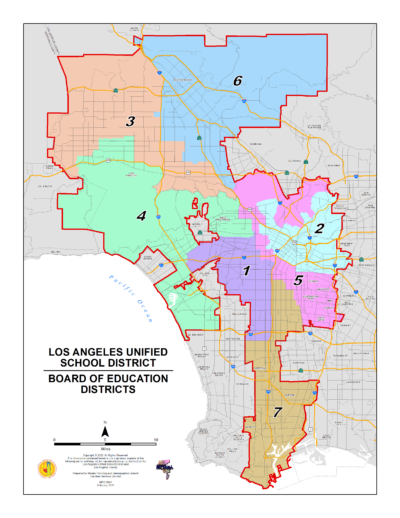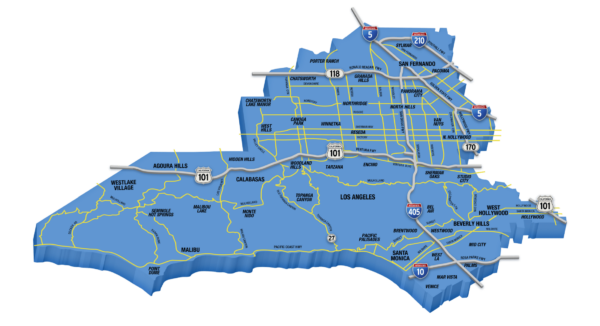By PAUL ANDERSON
Just before sentencing a double-murderer to two life-without-parole prison terms, an Orange County Superior Court judge ruled Friday that District Attorney Todd Spitzer violated the recently enacted Racial Justice Act in the case by making racially charged comments while discussing the prosecution.
Judge Gregg Prickett agreed with defense attorneys for Jamon Rayon Buggs, 47, that Spitzer violated the Racial Justice Act during discussions with prosecutors about whether to seek the death penalty in the case, in which Buggs was convicted of killing two people in Newport Beach in 2019.
But Prickett said Spitzer arrived at the proper “remedy” for the violation by not seeking a death sentence in the double-murder and opting to pursue the minimum sentence of life in prison without the possibility of parole.
Prickett found that Spitzer’s statements suggesting Black men date white women to elevate their status in society were a violation of the newly enacted law.
Defense attorney Denise Gragg argued for a new trial for Buggs, but Prickett denied the request. Gragg characterized as “nuts” Spitzer’s argument that his comments were addressing cross-racial identification issues in the case. George Turner of the District Attorney’s Office, however, noted that the issue of mistaken identity due to racial bias ended up being a part of the defense’s case in the trial.
In a statement, Spitzer said, “The judge ruled that the defendant was treated fairly at every stage of the proceeding, from charging to conviction to the sentence of life without the possibility of parole for executing two innocent people in cold blood.”
Buggs was convicted May 3 of two counts of murder, with a special circumstance allegation of multiple murders, and single felony counts each of attempted burglary and possession of a firearm by a felon. Jurors also found true sentencing enhancements for the discharge of a firearm causing death.
Buggs was convicted of killing 48-year-old Wendi Sue Miller of Costa Mesa and 38-year-old Darren Donald Partch of Newport Beach in 2019. The two were found dead in Partch’s residence at Villa Siena, 2101 E. 15th St.
Meanwhile, Buggs himself asked Prickett on Friday to delay his sentencing so he could fire his lawyers and represent himself. Buggs, as he has in the past, espoused debunked “sovereign citizen” conspiracy theory arguments that he was not subject to the jurisdiction of the court.
Buggs said he wanted to reset the clock legally so he could go back to the arraignment stage of the case, then refuse to enter a plea so he wouldn’t “enter into a contract” with the state, acknowledging jurisdiction in the criminal case.
Prickett, however, was having none of it.
“You have this misguided belief somehow that we need your permission to be involved in these proceedings,” Prickett told Buggs. “We have jurisdiction over you. The offenses were committed in this county. … This is not a civil situation. This is a criminal situation.”
Buggs responded, “Then I’m a slave. I don’t have a choice. That’s what you’re telling me. I’m a criminal before I’m a citizen.”
Prickett sentenced Buggs to two life-without-parole prison terms, along with another 54 years to life.
During the sentencing hearing, Buggs said he was sorry for what he did.
“I want to say this was completely my fault,” Buggs said.
He said he was “emotional” at the time as he was going through on-again, off-again relationship with his ex-girlfriend.
“I give my condolences,” he said of the victims. “I’m sorry this happened. I apologize. I stand accountable for what I did. … I ask you for your forgiveness. … I opened up my heart to my ex-girlfriend and it ended up on bad terms.”
Buggs said he was trying to “get away from her” at the time and said the victims were “in the wrong place at the wrong time. … I’m human and just like anyone else I make mistakes. We all make mistakes. And this mistake cost me my life.”
Prickett didn’t buy Buggs’ suggestion that he killed Miller by mistake, confusing her with his ex-girlfriend.
“In all likelihood she was crying out and the defendant was close enough to hear her and see her and know it wasn’t his ex-girlfriend,” Prickett said. “They were killed for no apparent reason.”
Miller’s daughter, Cambria Carpenter, told the judge that 1,000 people attended her mom’s funeral. She said her mother was “determined” and “sweet” and “truly brought out the best in everyone.”
“Because of (Buggs) my mother didn’t get to see me graduate from high school,” she said, calling the double-murder defendant a monster.
In his opening statement at trial, Senior Deputy District Attorney Dave Porter said Buggs went to Partch’s residence with a .38-caliber revolver and heard him “with someone he thought was his ex-girlfriend. He could not be more wrong.”
Buggs went inside the residence and startled the couple, who were naked in bed. Porter said Partch jumped up out of bed and Miller rolled over the other side.
The prosecutor said Buggs shot Partch first. Miller “had nowhere to run, no place to hide, no way to defend herself” as Buggs “placed the gun on the right side of her head and pulled the trigger,” he said.
The nude victims “died in a pool of blood,” he said.
Buggs sought out Partch because he mistakenly thought he was dating the defendant’s ex-girlfriend, Samantha Brewers, Porter said. However, Partch only met Brewers once at a 24 Hour Fitness gym in Costa Mesa and the two exchanged some messages on Instagram.
Brewers had moved to California from Minnesota and was living in Murrieta when she met Buggs at a fitness center, hired him as a trainer and the relationship evolved into a romance, Porter said. And when Buggs got a better job in Huntington Beach, the two moved there.
But when he later quit his job, it “put a strain on the relationship” and Brewers moved out, but the two stayed in touch, he said. By Thanksgiving 2018, Brewers told him the relationship was over, but he would not accept that, the prosecutor said.
When Buggs saw Brewers and Partch connect on Instagram, “He wanted to know who Darren Partch was,” Porter said. Buggs used premium web services to track down addresses and telephone numbers for Partch, and called and “threatened” him.
Partch was “totally shocked,” Porter said. “But he said, `No problem, I’ll stay away from her.”‘
Partch called Brewers and told her he didn’t want any part of “drama.”
“And that was it,” Porter said. “But in the defendant’s mind, they were still a couple.”
Brewers was dating a chiropractor, Jared Young, so Buggs also confronted him, Porter said. She also called police one night in the weeks leading up to the murder when she saw that Buggs was following her home from a gym.
Investigators found numerous online searches Buggs had done for Brewers, Young and Partch, he said.
Partch first met Miller at the Sandpiper Bar in Laguna Beach April 19, 2019, and left the club about 1 a.m. April 20, to return to Partch’s home, Porter said. One of her friends said to text her when she arrived at Partch’s residence, which she did. It was the last message she sent anyone.
Later on April 20, after the couple was killed, an Irvine resident reported an attempted burglary at a two-story townhouse at 818 Silk Tree in Irvine about 4:30 p.m. Buggs climbed up the second-story balcony looking for Jared Young, but unbeknownst to him, he was on the property of someone else with the same name, Porter said.
The resident made eye contact with the defendant after she investigated the source of a loud thump on the balcony, Porter said. She dashed over to the screen door, locked it and screamed.
Buggs scrambled down as she called police and fired his gun, Porter said. Buggs later told police it was an accidental firing of the gun.
Police set up surveillance in the neighborhood and later caught sight of him, but when an officer attempted a traffic stop, Buggs took off and led police on a high-speed pursuit that ended in a cul de sac, where he bailed out and was eventually found hiding behind a tree, Porter said.
Police found his bag filled with a gun and a notebook with Partch’s phone numbers and address, Porter said. The gun matched ballistics tests for the double-murder weapon.
Sarah Hefling of the Associate Defender’s Office asked jurors to focus on Buggs’ “mental state” on the night of the killings.
“This is something other than first-degree murder,” she said.
Defense attorneys argued for voluntary manslaughter and acknowledged that second-degree murder would also be more appropriate than first-degree murder. They also argued it was a case of mistaken identity, as Miller was said to resemble Brewers.
“Mental state is an issue in this case,” she said. “Jamon Buggs did not act in a premeditated and deliberate manner.”
Buggs met Brewers in March 2017 and the two quickly fell in love, with Brewers becoming close to Buggs’ family, Hefling said.
“This was not a casual dating relationship,” she said. “They saw themselves as a power couple.”
The two moved to Huntington Beach because Buggs got a much more high-profile fitness job, but “within a few months, (the relationship) started to fall apart,” the defense attorney said.
The two had an on-again, off-again dynamic to their relationship, she said. When Buggs wanted to move on, Brewers would “woo him back,” she said.
Brewers would send Buggs sexually charged messages on the phone and the two would continue their romantic relationship when they were supposed to have been broken up, Hefling said.
“It’s just a continuing roller coaster,” Hefling said of the relationship. Buggs was seeking to clarify where they stood when he was searching for information on Partch.
“The torture of not knowing … is pushing him to a place … to find the closure he thinks he needs,” she said.







